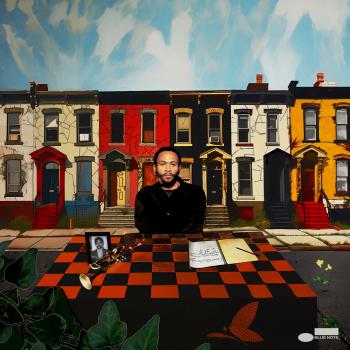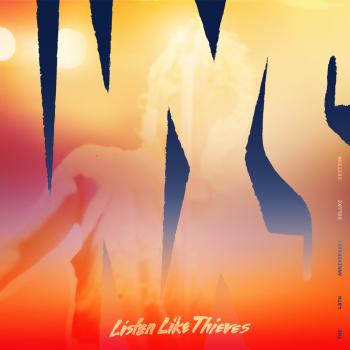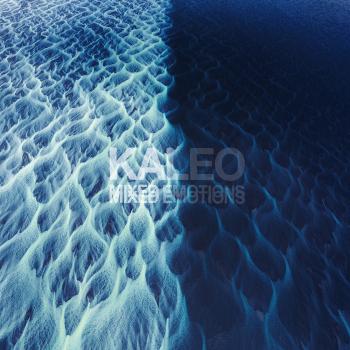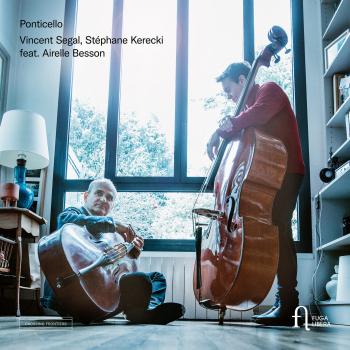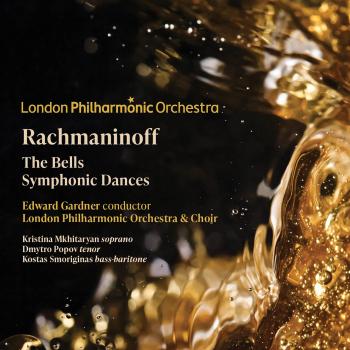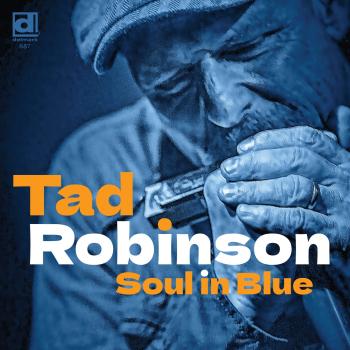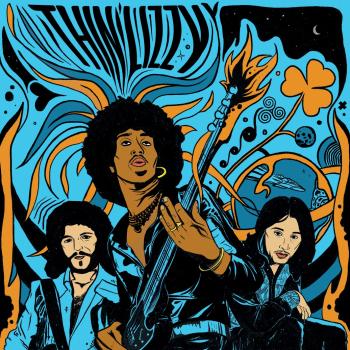
Peter Pears: Balinese Ceremonial Music Thomas Bartlett & Nico Muhly
Album Info
Album Veröffentlichung:
2018
HRA-Veröffentlichung:
18.05.2018
Das Album enthält Albumcover Booklet (PDF)
Entschuldigen Sie bitte!
Sehr geehrter HIGHRESAUDIO Besucher,
leider kann das Album zurzeit aufgrund von Länder- und Lizenzbeschränkungen nicht gekauft werden oder uns liegt der offizielle Veröffentlichungstermin für Ihr Land noch nicht vor. Wir aktualisieren unsere Veröffentlichungstermine ein- bis zweimal die Woche. Bitte schauen Sie ab und zu mal wieder rein.
Wir empfehlen Ihnen das Album auf Ihre Merkliste zu setzen.
Wir bedanken uns für Ihr Verständnis und Ihre Geduld.
Ihr, HIGHRESAUDIO
- 1 Gambangan 01:57
- 2 Dominic 03:43
- 3 Festina 04:04
- 4 Grendel 04:30
- 5 Pemoengkah 02:40
- 6 Valentine 03:56
- 7 Albeus 03:28
- 8 Nicholas 03:37
- 9 Taboeh Teloe 04:44
- 10 Selenite 04:31
- 11 Eusebius 04:53
- 12 Balthasar 04:21
Info zu Peter Pears: Balinese Ceremonial Music
Longtime friends and collaborators Thomas Bartlett (aka Doveman) and Nico Muhly release a new album, Peter Pears: Balinese Ceremonial Music, May 18, 2018, on Nonesuch Records. Peter Pears comprises nine songs written by the duo plus three gamelan transcriptions by ethnomusicologist Colin McPhee that inspired the songs.
McPhee lived in Bali during the 1930s, where he studied the gamelan intensively, bringing its sounds with him back to the Americas as one of the first composers to incorporate "world music" into his work. Returning to New York, McPhee moved in a group of artists that lived at 7 Middagh Street in Brooklyn. Alongside W.H. Auden, Carson McCullers, and Gypsy Rose Lee, he found the collaborator with whom in 1941 he would record his westernized transcriptions, for two pianos, of the ceremonial music he had heard in Bali: the composer Benjamin Britten, who would himself travel to Indonesia, and drew heavily on its traditions in his own later works.
In college, Muhly and Bartlett became obsessed with these recordings and started writing music rooted in their textures and interlocking rhythms. The resulting nine songs reflects both artists' recent work—from Muhly's attempts to bridge the gap between post-minimalist composition and many other musical obsessions, to Bartlett's Oscar–nominated work with Sufjan Stevens for Call Me by Your Name. The project is named for Britten's partner, who also lived at 7 Middagh; accompanied Britten to Bali; and sang with a voice arguably as unusual as the one Bartlett deploys on this album. Pears was Britten's link to a wider community of artists; similarly, these songs feature a large cast of Bartlett and Muhly's regular collaborators on strings and metallic pitched percussion.
Bartlett says, "I wanted to not write in the same voice as I wrote Doveman songs, which is essentially "sad heartbroken boy who can barely muster the will to sing", and I was a little sick of that. I ended up going through baby books my mom has from when I was a little kid, finding strange things I had said, and building lyrics off of that—then folding in all of these references to different saints and things that seemed connected to Peter Pears, to Colin McPhee, to that world."
Muhly adds, "How integral the relationship is between someone's life partner and their music informs the lyrics too. McPhee's transcriptions are instrumental, so they don't really "mean" anything, but there's this matrix of connections that are both musical and emotional."
Thomas Bartlett, also known as Doveman, is an American pianist, singer, and producer. He has worked with many Nonesuch artists—including Sam Amidon, David Byrne, The Magnetic Fields, Mandy Patinkin, and Chris Thile—as well as Sufjan Stevens, Glen Hansard, The National, St. Vincent, Father John Misty, The Gloaming, Martha Wainwright, and others. Born in Vermont, Bartlett studied piano in London with Maria Curcio. As teenagers, he and Amidon formed the folk music band Popcorn Behavior (aka Assembly), and released three albums. Upon moving to New York, Bartlett began performing with Chocolate Genius and Elysian Fields. The first Doveman record, The Acrobat, was produced by Patrick Dillett, as was 2007's With My Left Hand I Raise the Dead. In 2008 Bartlett released a solo re-imagining of the Footloose soundtrack. The Conformist (2009), again produced by Dillett, featured members of The National, as well as backing vocals by Hansard, Wainwright, Norah Jones, Beth Orton, and Dawn Landes.
Nico Muhly is an American composer and collaborator whose influences range from American minimalism to the Anglican choral tradition. The recipient of commissions from The Metropolitan Opera, Carnegie Hall, St. Paul's Cathedral, the Philadelphia Orchestra, and others, he has written more than eighty works for the concert stage. Muhly is a frequent collaborator with choreographer Benjamin Millepied and, as an arranger, has paired with Joanna Newsom, Antony and the Johnsons, Sufjan Stevens, and The National. He has composed for stage and screen, with credits that include music for The Glass Menagerie and scores for the films Kill Your Darlings; Me, Earl and the Dying Girl; and The Reader. Born in Vermont, Muhly studied composition with John Corigliano and Christopher Rouse at The Juilliard School before working as an editor and conductor for Philip Glass. Muhly's previous Nonesuch recordings are the Metropolitan Opera's recording of his Two Boys and his collaboration with Teitur, Confessions. He lives in New York.
"Carrying a somewhat cryptic title, Peter Pears: Balinese Ceremonial Music is a collection of original songs by composer/arranger Nico Muhly and singer/songwriter/producer Thomas Bartlett (Doveman). Both active in their own varied roles on the indie rock scene, they're also both classically trained pianists who first met in the early 2000s at Columbia University. They later discovered a shared interest in the work of Colin McPhee, a Canadian composer credited as the first to bring the music of Bali and Java to the West. A precursor to modern world music, his gamelan transcriptions for dual piano were eventually recorded in the 1940s by McPhee and composer Benjamin Britten. Three of those transcriptions are performed here by Bartlett and Muhly and scattered through a sequence of nine original songs inspired by McPhee's work. The project is named in honor of Britten's partner, opera tenor Peter Pears (an interesting figure in his own right). Bartlett's lyrics were inspired by a combination of self-discoveries in his mother's baby books and references to things connected to Pears and McPhee, including the personal and musical.
Perhaps the most surprising thing about Peter Pears: Balinese Ceremonial Music, beyond the fact that it's not traditional gamelan music after all, is how well the songs fit alongside Bartlett's work with Doveman. Made up of quiet arrangements for voice, piano, keyboards, strings, and pitched percussion, Bartlett's whispery vocal delivery and the occasional drum samples and glitchy electronics put a gauzy indie electronic filter over the songs' complex, overlapping rhythms. "Festina," for example, mixes pulsing and syncopated polyrhythms across a blend of keyboards, pizzicato strings, and metallic percussion. Bartlett's voice eventually enters on an overarching melody with lyrics that complain of moving too fast ("Chaos beckoned with a graceful hand/Smile like quicksand"). Emerging keyboard phrases, bowed strings, and atmospheric backing vocals join toward the end of the song as melody briefly overtakes rhythm. That push and pull -- melody emerging from rhythmic patterns and vice versa -- is a trait of the whole album and of the gamelan influence itself, including the sparer McPhee tracks ("Gambangan," "Pemoengkah," and "Taboeh Teloe"). An entry like "Selenite" is less intricate but still rhythmic and texturally complex. Taken together, the effect falls somewhere between an exacting étude and a stroll through a garden of wind chimes, with the singer's presence and gossamer instrumental touches often tipping the balance toward the latter. While it may sound, on paper, like an academic exercise, the results are exquisite and often poignant." (Marcy Donelson, AMG)
Thomas Bartlett, piano
Nico Muhly, piano
Nico Muhly
(b.1981) is an American composer and sought-after collaborator whose influences range from American minimalism to the Anglican choral tradition. The recipient of commissions from The Metropolitan Opera, Carnegie Hall, St. Paul’s Cathedral, the Philadelphia Orchestra and others, he has written more than 80 works for the concert stage, including the operas Two Boys (2010), Dark Sisters (2011), and Marnie; the song cycles Sentences (2015), for countertenor Iestyn Davies, and Impossible Things (2009), for tenor Mark Padmore; a viola concerto for violist Nadia Sirota; the choral works My Days (2011) and Recordare, Domine (2013), written for the Hilliard Ensemble and the Tallis Scholars respectively and most recently Looking Up (2017), a work for choir and orchestra for the Cathedral Choral Society.
Muhly is a frequent collaborator with choreographer Benjamin Millepied and, as an arranger, has paired with Joanna Newsom and Antony and the Johnsons, among others. Planetarium, a large work co-written with Sufjan Stevens and Bryce Dessner, was released on 4AD records. He has composed for stage and screen, with credits that include music for the 2013 Broadway revival of The Glass Menagerie and scores for the films Kill Your Darlings; Me, Earl And The Dying Girl; and the Academy Award-winning The Reader. Born in Vermont, Muhly studied composition with John Corigliano and Christopher Rouse at the Juilliard School before working as an editor and conductor for Philip Glass. He is part of the artist-run record label Bedroom Community, which released his first two albums, Speaks Volumes (2006) and Mothertongue (2008). He currently lives in New York City.
Booklet für Peter Pears: Balinese Ceremonial Music



